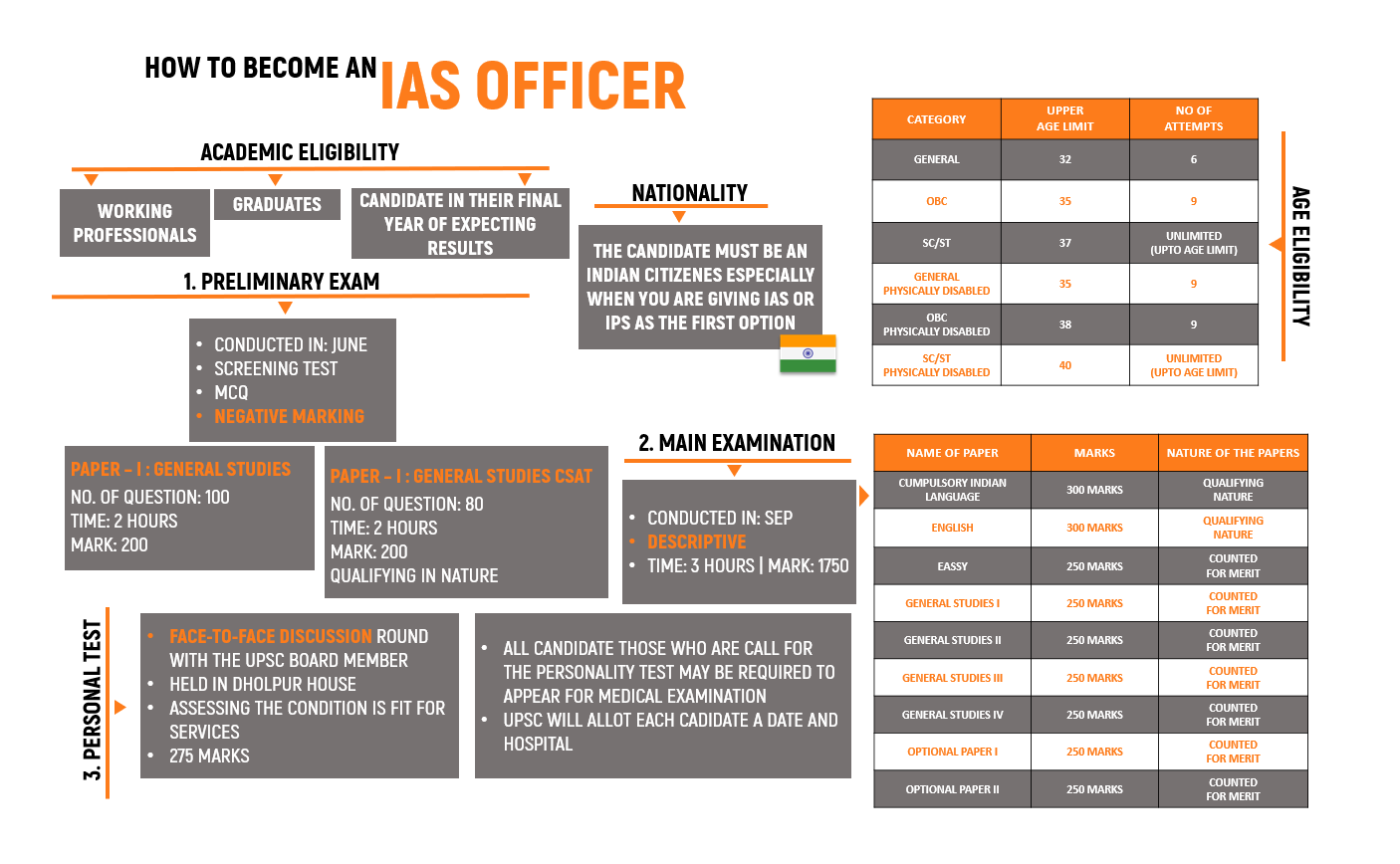UPSC CSE has the following three stages:
Stage 1: (UPSC Prelims - Objective section)
- Stage I is Prelims, has two objective-type papers. One is the General Studies and the second is the aptitude test often known as Civil Services Aptitude Test (CSAT).
- Application forms are available on UPSC's official website upsc.gov.in
- There will be penalty (1/3rd negative marking) for wrong answers marked by a candidate
- The question papers will be set both in Hindi and English.
|
|
No of Questions |
Marks |
Min Marks |
| Paper I |
GS |
100 |
200 |
Cut- Off |
| Paper II |
CSAT |
80 |
200 |
67 |
- Paper-II of the Civil Services (Preliminary) Examination will be a qualifying paper with minimum qualifying marks
- It is mandatory for the candidate to appear in both the Papers of Civil Services (Prelim) Examination for the purpose
Stage 2: (UPSC Mains - Subjective section)
- Stage 2 of the CSE is the Mains exam, is a subjective exam and includes nine descriptive papers.
- Only individuals who clear the UPSC CSE Prelims with the required cut-off marks will be eligible to appear for Mains Exam.
- Candidates who clear Prelims will have to fill a separate form for Mains examination.
- Each paper will be of three hours duration (250 Marks Each)
- Total Marks for qualification is (250* 7 papers =1750 marks)
|
Marks |
| GS Paper 1 |
250 |
| GS Paper 2 |
250 |
| GS Paper 3 |
250 |
| GS Paper 4 |
250 |
| Essay Writing |
250 |
| Optional Paper 1 |
250 |
| Optional Paper 2 |
250 |
Apart from these 7 papers whose marks are counted while deciding cut-off,
there are 2 language papers which are of qualifying nature i.e. one has to score
25% marks in these papers to qualify. These papers are:
- English Language Paper
-
Indian Language Paper (One of the Indian Language to be selected by the
candidate from the Languages included in the Eighth Schedule to the Constitution)
Stage 3: Interview
- Stage 3 of the CSE is the Mains exam, is a subjective exam and includes nine descriptive papers.
- Only individuals who clear the UPSC CSE Mains with the required cut-off marks will be eligible to appear for the next and the final stage- Personality Test or Interview in front of the UPSC Board Members.
- If the candidate clears the written tests, he/she will receive an e-summon issued by the UPSC. The summon will direct the candidate to appear for a personality round with the UPSC Board Members.
- This round is conducted to assess and evaluate the candidate’s personality traits. He/She will be asked questions on matters of general interest. The discussion round includes questions related to a candidate s CV, hobbies, GK, and current affairs, case-study or situation based questions, etc. This round is organized in the UPSC Bhawan in New Delhi.
